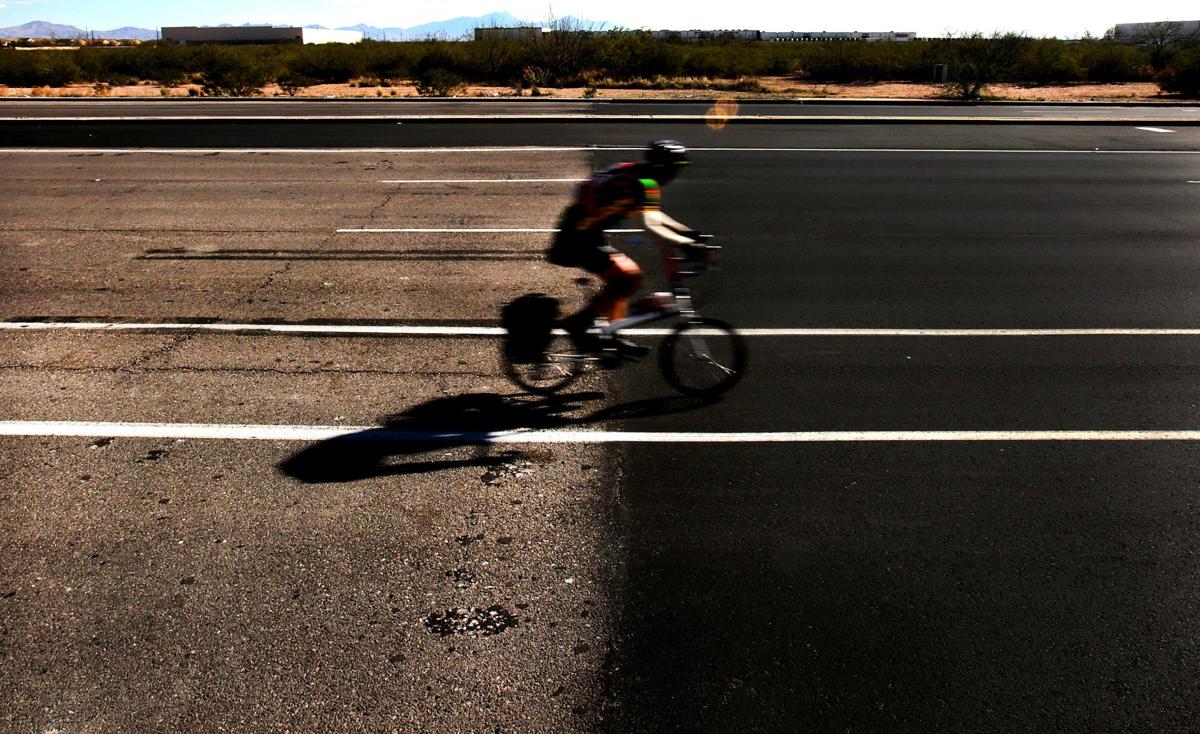It’s an all-but-unanimous opinion that roads in Pima County are in bad shape. The thornier question is how to pay for the Herculean undertaking of getting them back to decent condition.
On Tuesday, the Board of Supervisors will discuss a proposed half-cent county sales tax for road repair, and there will be a number of plan elements prone to compromise and disagreement, some possibly irreconcilable: How much — if any — of the proceeds should be used for property-tax reductions; how big a role the RTA should play; what measures should be taken to support low-income residents, who are disproportionately affected by sales taxes; and whether there should even be a sales tax for roads.
No final decision will be made Tuesday. The board will likely consider an ordinance governing the sales tax on May 1, with a vote on the tax itself on May 15. The ordinance includes a treatment schedule for all the roads in unincorporated areas that would be repaired.
Leaving aside the details, do you support a county half-cent sales tax for road repair?
As presented by County Administrator Chuck Huckelberry, the 10-year tax’s estimated $887 million in revenues would be split between unincorporated Pima County and other jurisdictions based on population, the funding could only be used for road repairs, the effort would be subjected to review by the RTA and state auditor general annually, and the current 25-cent road property tax would be canceled. Those and other features could change after Tuesday.
Approving such a sales tax requires a unanimous vote from a board not known for 5-0 decisions on controversial matters. However, all five of the supervisors have at various times told the Road Runner that they could back a sales tax for road repair, though several said that support would be contingent on certain conditions being met.
“The only reason I would be open to (a sales tax) is because after 20 years of neglect, we are in a terrible mess,” Supervisor Ally Miller — the least-likely to vote for any sales tax — told the Road Runner a year ago.
Perhaps tongue-in-cheek, she suggested on Wake Up Tucson last week that she might consider supporting the proposed tax if longtime adversary Huckelberry promised to resign in exchange. That “condition” would have to be coupled with guarantees that “100 percent” of the money goes to road repair, she told host Chris DeSimone.
Miller did not return a request for comment by deadline.
For Miller’s fellow Republican supervisor, Steve Christy, his “line in the sand” issues are ensuring the RTA plays a big part in overseeing projects funded by the sales tax and limiting the use of its revenues to reduce Pima County’s high property taxes or fund programs for low-income residents.
The recommendation from Huckelberry includes a new approach for such funding. Instead of coming out of the sales-tax revenues, as the sales-tax advisory committee recently proposed that the administrator proposes spending $52.5 million from the general fund over the 10-year life of the tax as “support for programs that increase the financial stability and health of low-income households to mitigate the impact of the sales tax on these households,” according to a recent memorandum.
Supervisor Richard Elías, a skeptic on sales taxes because of their regressive nature, called that proposal “a step in the right direction.”
“Where is it coming from?” Christy, who is skeptical of that new spending, asked about the general-fund dollars. “I’m dead-set against it.”
Huckelberry said rising property values and increasing state shared revenues should be able to cover the low-income program support.
Supervisor Ramón Valadez was pleased to see that support not come out of sales-tax revenues. The plan also calls for the creation of a commission that will oversee the spending.
“This won’t just be additional monies on top of what we’ve got, these are monies that are attached to a strategy, attached to a plan that is going to have measurable milestones,” Valadez said. “I think that is absolutely superb.”
Valadez says he’s hoping that portions of the sales will be used to reduce property taxes, which puts him at odds with Christy.
Given that it takes only one vote to derail the whole effort, and Miller seems an all-but-certain “no,” Valadez conceded the prospects for a board-approved sales tax are “slim.”
Christy agrees, but nevertheless feels the “discussion along the way will be very beneficial.”
“At the very least, the community will know where the supervisors stand on this issue,” he said.
Where do you stand? There’s a poll with in the online version of this story.





